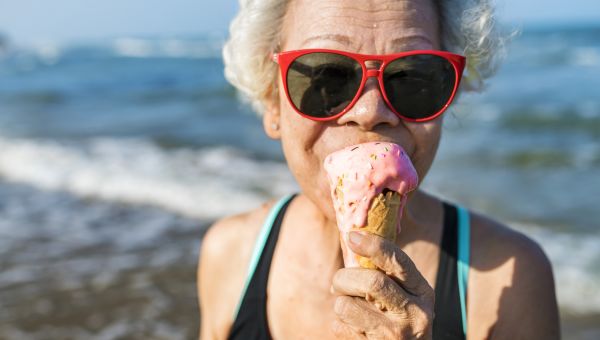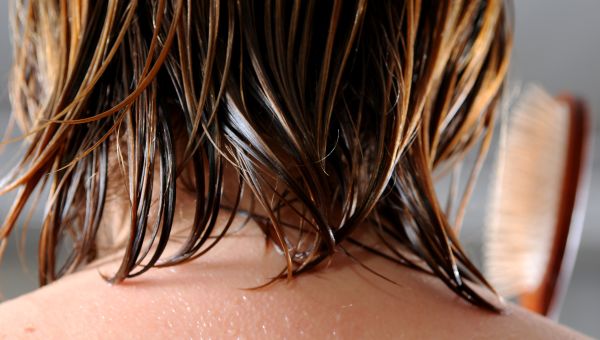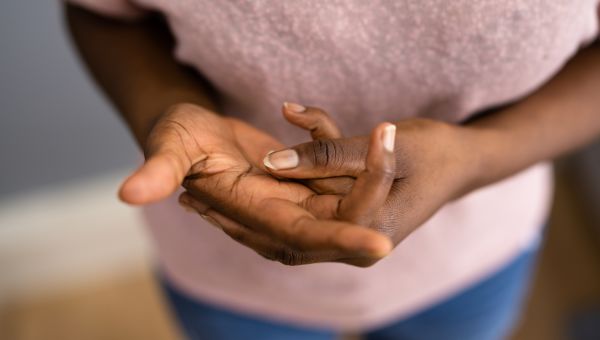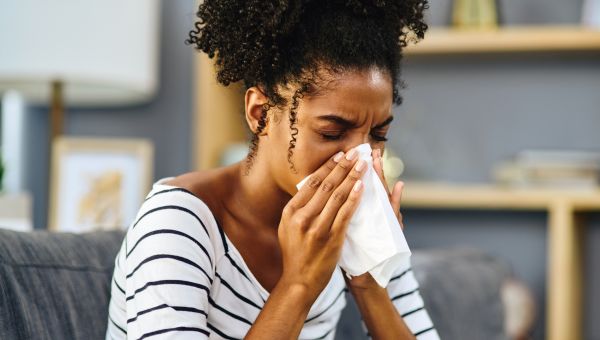5 bogus health tips
These common health rules may not be as accurate as you think.

By Olivia DeLong
Don't swim right after you eat. Never go outside with wet hair. We've all heard health tales like these or read them on the Internet—but many lack scientific evidence. We talked with Mark Newton, MD, of Doctors Hospital of Augusta, Georgia, to debunk some of those long-standing health tales—so you can stop worrying.

“I’ll get sick if I go outside with wet hair.”
Fact: Heading outside into the cold after a shower is not going to be the reason for your run-in with the flu this year. “Flu viruses and cold viruses are noticed more commonly in the winter, but the association or correlation is not from going out with wet hair,” says Dr. Newton. “The two are completely unrelated.” To stay healthy this winter, focus on getting proper sleep and exercise. And don’t forget smart cold prevention, like washing your hands: According to Newton, being inside so much during the winter can translate to spreading colds more rapidly.

“Cracking my knuckles will cause arthritis.”
Fact: Your daily—or hourly—habit may annoy those around you, but it’s not going to lead to serious problems down the road. “The popping is just dissolved gases in your joints,” Newton says. By pulling two bones apart, you create a temporary vacuum. “It’s the same basic thing that happens when people ascend too quickly from scuba diving and get bubbles in their bloodstream,” he says. “If you do it excessively, just like anything, there is a risk for injury or accelerated damage, but it doesn’t cause arthritis.” Just be mindful of how frequently you do it.

“My nose isn't running clear, so I must have an infection.”
Fact: Don't rush to a self-diagnosis at the first sign of a runny nose. The color of that goopy stuff is just one of the things doctors consider to determine if your condition is viral or bacterial, says Newton. With allergies, clear to slightly cloudy drainage is common; clear to slightly yellow mucous usually indicates a virus, while a greenish color or blood could mean a bacterial infection. But other symptoms make a difference, too. Bottom line, says Newton: "It’s not one size fits all."

“Eating spicy foods will cause stomach ulcers.”
Fact: Don’t kiss your beloved Sriracha goodbye because of a health myth. Stomach ulcers are caused by a breakdown in the protective lining of your stomach, and eating spicy foods doesn’t cause that. “Dealing with ulcers is certainly a serious thing and over the years there have been a lot of theories, but it turns out that ulcers are caused by the infection of a particular bacteria,” says Newton. In other words, carry on. Your mouth might be on fire, but your tummy should be okay.

“Swimming after eating will cause stomach cramps.”
Fact: While waiting a few minutes before you cannonball into the pool right after the family BBQ is probably a good idea, there’s no harm in jumping right in if you want to. “If you eat a large meal before any kind of strenuous physical activity, you’ve got blood flowing to the muscles and intestines at the same time, but that’s normal,” says Newton. “It also doesn’t stop 30 minutes after eating.” There is no proof to support that swimming after eating causes abdominal cramping, he adds. If you don’t feel overly full, you should be okay.
More On


video

article

slideshow


video


video
